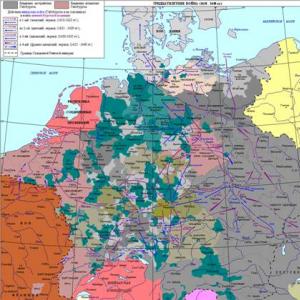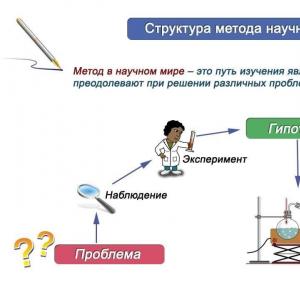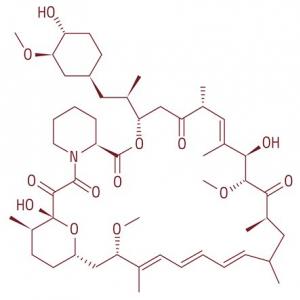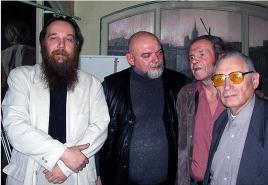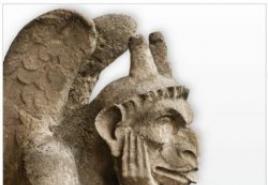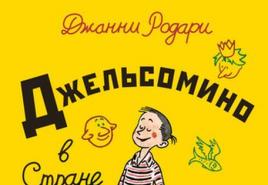Own names Nouns: Examples. Nouns names - own and nominal
This is part of speech that calls the subject and answers questions. "who what?". National names have a number of features with which you can classify all nouns by type.

The main signs of the noun.
- Grammatical meaning name noun - the general value of the subject, all that can be told about this subject: it what ? Or who ? This part Speech may indicate the following:
1) the name of the items and things ( table, ceiling, pillow, spoon);
2) the names of substances ( gold, Water, Air, Sugar);
3) the names of living beings ( dog, man, child, teacher);
4) the names of actions and states ( murder, laughter, sadness, sleep);
5) the name of the phenomena of nature and life ( rain, wind, war, holiday);
6) titles of signs and distracted properties ( white, freshness, blue).
- Syntactic sign of noun- This is the role that it takes place in the proposal. Most often, the name noun acts as a subject or addition. But in some cases, nouns can also act as other members of the sentence.
Mum Prepares very tasty borsch (subject).
Borsch is preparing out beets, cabbage, potatoes and others vegetables (addition).
Beets - that's vegetable red, sometimes purple (nominal leaky).
Beet from the neck - the most useful (definition).
Mum- culinary knows how to surprise her household at the table, mother friend knows how to listen and console (attachment).
Also the noun in the sentence can act as appeals:
Mum, I need your help!
- On lexical sign Nouns can be two types:
1. Names are homes - these are words that mean general concepts or call class items: chair, knife, dog, earth.
2. Own names - These are words that mean single items to which names, surnames, city names, countries, rivers, mountains (and others geographical names), animal nicknames, book titles, movies, songs, ships, organizations, historical events etc: Barsik, Weaver, Titanic, Europe, Sugar and etc.
Features of their own in Russian:
- Own names are always written with a capital letter.
- Own names have only one form.
- Own names can consist of one or more words: Alla, Viktor Ivanovich Popov, "loneliness in the network", Kamensk-Uralsky.
- Names of books, magazines, ships, films, paintings, etc. Writing in quotes and with a capital letter: "Girl with peaches", "MTSI", "Aurora", "Science and Technology".
- Own names can become nominated, and nines - go to the discharge of their own: Boston - Boston (dance type), True - the newspaper "True".
- By type of designated items nouns names divided into two categories:
1. Foreign names of nouns - those nouns that indicate the names of wildlife (animals, birds, insects, people, fish). This category of nouns is responsible for the question. "Who?": father, puppy, whale, dragonfly.
2. Inanimate names of nouns - those nouns that relate to real and answer the question "what?": wall, board, automatic, ship and etc.
- By meaning Nouns can be divided into four types:
Real- View of nouns calling substances: air, dirt, ink, sawdust et al. This type of nouns has only one form of the number - the one we know. If the noun has the shape of the only number, then it cannot have multiple and vice versa forms. The amount, size, the volume of these nouns can be adjusted using quantitative numbers: little, a lot, little, two tons, cubic meterand etc.
Concrete- Nouns names that call specific units of objects of alive or inanimate nature: man, pillar, worm, door. These nouns are changing in numbers and are combined with numerical.
Collective- These are nouns that summarize the set of identical objects in the same name: a lot warriors - army, many leaves - foliage etc. This category of nouns can exist only in the singular and not combined with quantitative numerical.
Abstract (distracted) - These are nouns, calling abstract, non-existent in the material world, concepts: suffering, joy, love, grief, fun.
Nouns have a permanent morphological sign of the genus and belong to Male, female or medium genus.
To male, female and medium genus include words with the following conjunction:
Male new student arrived- (a, and)
female new student arrived-a
Middle Large Window Revealed-O
Some nouns with the end - and denoting signs, the properties of persons, in I. p. Have a double characterization by the genus depending on the floor of the person indicated:
your neveryzh came,
your Nevezhi came-a.
These nouns are referred to general Rody
Nouns only multiple number (cream, scissors) do not apply to any of the birth, since multiple number Formal differences between nouns of different types are not expressed (Wed: Part-s - table-s).
Nouns are changed in terms of numbers and cases. Most nouns have the forms of the singular and plural (city - cities, village - villages).
However, some nouns have or only the unique number (for example, peasantry, asphalt, burning),
or only multiple form (for example, scissors, railing, weekdays, Luzhniki).
Only the shape of the plural number have:
-Enging material nouns: ink, sawdust, cleaning;
Some disturbed nouns: name day, election, attacks, goats, beatings;
-News collective nouns: money, finance, debris;
Some names are our own: Karakuma, Carpathians, Roman "Demes";
-Slov denoting pair items, i.e. items consisting of two parts: glasses, pants, sleigh, gate, scissors, ticks;
-Next names of time segments: twilight, day, weekdays, vacation.
Note.
Nouns that have only the shape of the plural, the genus is not determined.
Features of the formation of forms of multiple number in some nouns names.
-The words man and baby in multiple number form forms people and children.
-The words son and Kum. -One: sons, Kumany.
-The words mother and daughter In all the forms of the only one (except for cognitive and vinitive cases) and the plural of suffix have a plural -er: mother, daughter.
-The words miracle, Sky and Treein the multiple number acquire suffix Yes: miracles, heaven, hebs.
The words body and word Have outdated multiple-numbered forms with this suffix: Teles, words, along with regular telá, wordsá.
-Word eye very
: othmare, Ocho, Ochami.
-Word an earmultiple has the basis uCH-: ears, ears, ears.
-Word vessel (In the value "ship") in the plural loses the last background of the root -n: courts, ships, ships.
-Word church When declining in the plural, it has an option with a solid basis: churches and churches, churches and churches.
In Russian, along with the only and multiple number, there are the following phenomena of a numerical nature:
- a hand number of nouns, consistent with adjectives in a plural ( teeth, sons, stakes, knees, leaves, roots against MN.ch. teeth, sons, colas, knees, sheets, roots);
- a visible number of nouns, consistent with adjectives in the singular ( fool, a beast against MN.C. Fools, beasts);
- multiple number expressing a set of volumes or types of an inclulted noun ( sands, On, Run)
Paide as a morphological sign of nouns
Nouns change according to cases, i.e. have a non-permanent morphological sign of the number.
In Russian, 6 cases: nominative (I. p.), Pivative (R. p.), Denitary (D. p.), Requesting (V. p.), Corrupt (T. P.), Complained (P. P.). These cases are diagnosed in the following contexts:
I. p. Who is who? what?
R. p. No Who? What?
D.p. Rad to who? What?
V.p. I see who? what?
T. P. Is proud of whom? than?
P. p. I think about whom? than?
The endings of different cases are different from the dependence on what declination is the noun.
Declination of nouns
Changing nouns by case declining.
To decline These are nouns. and wives. The genus with the end of I. p. Numbers -a (s), including words ending on -i: Mom-A, Pap-A, Earth, Lecci (lecij-a). Words with the basis that ending with the hard consonant (solid version), a soft consonant (soft option) and with the basis on-andj have some differences in the end, for example:
| Paide | Singular | ||
| Solid | Soft option | On the - and I | |
| Im.p. | Countries - but | Ground -I | Army. -I |
| R.P. | Countries - s | Ground -and | Army. -and |
| D.P. | Countries - e. | Ground -E. | Army. -and |
| V.P. | Countries - w. | Ground -Yu | Army. -Yu |
| T.P. | Countries -Oh (-Oy ) | Ground -to her (-Yoo ) | Army. -to her (-Eyu. ) |
| P.P. | Countries -E. | Ground -E. | Army. -and |
KO II decline These are nouns. The genus with the zero end of I. p., including words on -y, and noun m. and cf. The genus with the end of -o (-e), including the words to the name: table, genius, Gorodishk-o, window-o, half-e, penalty (penny).
To the III decline These are nouns. The genus with the zero end in I. P.: Dust, night-.
| 1st declination | 2nd declination | 3rd declination |
| m. r. with endings -a
For example:dad Kohl. g. R. with endings -a For example:vase, Nanny |
m. r. With zero ending (except the word "path")
For example:horse construction table cf.r. with endings -O, -E. For example:tRUSTOR |
g. R. with a zero end with a soft sign at the end
For example:area , trim |
Diagrablenouns names They are inclined in a special, and therefore do not apply to any type of decosion. These are 10 names of nouns on-"
Breeding Time Banner Tribe Strong Flame Name Thor Udder Seed
As well as noun Path and child. In nouns on-"in the only number in the parent, dative, efficient and proposed case, suffix is \u200b\u200badded - and, and the noun child has a suffix-like-.
Detic Detic Child Child Dietati
In Russian there are so-called unclear noun.
By the unclear names, nouns include:
1) borrowed, ending on vowels;
For example: Avenue, Aloe, Amplua, Depot, Cockada, Kushn
2) Many other language names are their own;
For example:Zambezi, Tokyo, Merime, Zola
3) abbreviations and comprehensive words ending with vowels;
For example:MGIMO, TSO, Selpo
4) Foreign surnames denoting female people: Smith, Raulf.(foreign surnames denoting male persons are inclined as nouns of the second decline);
5) Russian and Ukrainian surnames on-and-andy (s).
For example: Koreiko, gray
They are customary to describe as words without endings.

I should remember the formation of forms pOST PAIDEmultiple number of some nouns, where the end may be zero or -One.
These include words calling:
1) paired and composite items: (no) felt boots, shoes, stocking, gate, day (but: socks, rails, glasses);
2) Some nationalities (in most cases the basis of the Words will end on N and P): (No) British, Bashkir, Buryat, Georgian, Turkmen, Mordvin, Ossetian, Romanian (but: Uzbeks, Kyrgyz, Yakuts);
3) Some units of measurement: (five) Ampere, Wat, Volt, Arshin, Hertz;
4) Some vegetables and fruits: (kilogram) of apples, Malin, Olives (but: apricots, oranges, bananas, tangerines, tomatoes, tomatoes).
In some cases, the end of the plural is performed in words a senseless function. For example: Dragon's teeth - a teeth of saws, roots of a tree - fragrant roots, sheets of paper - wood leaves, IS-scratched knees (knee - "joint") - sophisticated knee (knee - "Take dance") - Knee pipes (knee - " Through the pipe ").
Morphological analysis of the existence
I. Part of speech. General value. Initial form (nominative case of the only number).
II. Morphological signs:
1. Permanent signs: a) own or nominal, b) animated or inanimate, c) genus (male, female, medium, common), d) decline.
2. Non-permanent signs: a) case, b) number.
III. Syntactic role.
Sample morphological parsing Nouns
Two ladies ran up to a nudge and helped him stand up; He began to shoot down the dust from the coat (according to V. Nabokov).
I. Ladies - noun;
initial form - lady.
II. Permanent signs: Narice., Odash., Women. genus, I SKL.;
non-permanent signs: MN. number, I. p.
III. Ratched (who?) Ladies (part of the subject).
I. (k) a nude - noun;
initial form - LUZN;
II. Permanent signs: owns., Odush., Husband. genus, I SKL.;
non-permanent signs: units. number, D. p.;
III. Disted (to whom?) .Underline (Border-Bottom: 1px dashed blue;) to a nudge (addition).
I. Ladonew- noun;
initial form - palm;
II. Permanent signs: Narice., Nodya., Women. genus, I SKL.;
non-permanent signs: units. number, T. p.;
III. Began to shoot down (than?) Palon (addition).
I. Dust- noun;
initial form - dust;
II. Permanent signs: Narice., Nodya., Women. Rod, III SKL.;
non-permanent signs: units. number, V. p.;
III. Began to shoot down (what?) Dust (addition).
I. coat- noun;
initial shape - coat;
II. Permanent signs: Narice., Nodya., Wed. born, not a few;
non-permanent signs: the number is not determined by the context, R. p.;
III. Began to shoot down (where?) With a coat (addition).
Noun name - one of the main parts of speech in Russian. Nouns in the proposal can be expressed to the subject, addition, definition and circumstance. This part of speech includes everything that surrounds us - people, objects, nature elements. However, nouns are divided into a large number of forms, have characteristic features. Let's figure out than the unique name of the noun in Russian, and what you need to know about it for its proper use and writing.
Main characteristics

So, in order to understand the meaning of this part of speech, consider its main signs.
Determining the name of the noun sounds as follows:
Noun - part of speech responsible for questions "Who?" So what?". Unlike pronouns responsible for the same issues, nouns always contain any meaning (for example, denote the face, subject, sometimes action). Nouns names, as a rule, depending on the form have zero endings or endings consisting of one letter (-A-and -o). In phrases and suggestions from nouns may depend on the adjectives, pronouns, other nouns with the pretext. Consider examples.
Examples of nouns in sentences
And today, I jumped up and looked at clock, I immediately understood that it was necessary to dress like fire. And I dressed for one minute forty eight seconds All, as it should, only shorders laced through two hole. In general, in school I slept on time and in class also managed to hurt give me a sec Before Risa Ivanovna.
However, their forms are the greatest interest in studying the nouns, namely, the genus, the number, decline and case.
Paide
Padege names of nouns are the basis of the grammar of the Russian language. Cases are also characteristic of the names of adjectives, pronoun, ordinal numerical and communities. What are the cases allocate in Russian?

Examples of proposals with different cases of nouns
Nominative:

Weather there was a rainy and cold; Wet wet snow, Popolas with rain.
Genitive:
Asked apologies At Prince, I began to dress.
Dative:
That was not a reflection of the heat of spiritual or playing imagination: it was shine like brilliant smooth steel, dazzling, but cold; His look - a short, but insightful and heavy, left an uncommon's impression on himself an unmodest question and could seem supreme if it was not so indifferently calm.
Accusative:
Clothes It could be quite called a ruby; Thick black hair were unpaid and torn.
Instrumental:
All this morning I fought with my papers Viewing them and put in order.
Prepositional:
It was a dirty, black and always dark staircase, of those that usually happen in Capital houses with small apartments.
So, we sorted out with cases of cases and met the case endings of nouns names. Next, we consider what kind of births are divided by nouns, and what are the features of such a sign as the number of nouns.
Rank
In Russian language, three kinds are women, male and medium. Each of them corresponds to one of the pronouns of a third party of the only number: the female genus is "she", the male genus is "he" and the average genus "it". Examples of nouns:
- Story, anthem, blow, theater, space, child, candlestick - male family;
- Shelf, head, mouse, Anna, conscience, indulgence, servants - female genus;
- Reflection, knowledge, skill, indifference, sun, plexus - medium genus.
Offers with noun various genera:
Magnible along fence And suddenly hear vote; one vote I immediately found out: it was azamat's Has son OUR host; Another spoke less frequently and quieter.
His leather had some kind of female tenderness; Blond hair curly from nature So picturesquely outlined his pale, noble forehead, on which, only on a long observation, it was possible to notice traces wrinkle crossed one different and probably designated much more clearly in minutes Anger or spiritual anxiety.
However, these are my own comments Based on my same observations And I don't want to make you make blindly in them.
Number
In Russian, only the nouns of the sole and multiple number can be distinguished. The first type includes: ceiling, tablet, history, output, staircase, box, etc. And to the second - games, students, deeds, classes, teams, doubts.
It is worth noting that the genus is a constant sign of the noun, and the number is non-permanent. That is, if you put a noun in the form of a plural, its genus will not change. And the number of nouns is easily changed.
We now turn to the next part of the grammar of the Russian language - to the decisions of nouns names.
Declining

Declination is a characteristic characteristic, unlike the rest, only for nouns. In total, there are three declinations in Russian. Consider each of them.
- First declination. It includes nouns for female and male genus, having endings -A -I. For example, Kolya, theory, toy, trouble, Maria, Pipe, sheet and others.
- Second declination. Includes noun male genus with zero ending (knife, mole, body, stone, strife, comrade, prisoner) and nouns medium-sized with endings -O, -e (sun, adventure, wheel, disorder, invention, miracle, abundance) .
- Third declination. It includes nouns of female genus with zero ending, that is, ending on a soft sign (s): Notebook, oven, mouse, eternity, night and others.
So, we considered the declination of the names of the nouns. Now we'll figure it out with various functions of nouns in the sentence.
Functions in the sentence
The noun in the sentence may act as subject, the addition, circumstances, definitions, and also to be part of the composite nominal fag. In other words, the noun one can be called a universal member of the sentence. We will understand in more detail with its syntactic functions.
- Subject
Subject to - the main role of the noun in the proposal. It answers questions "Who?", "What?"; It is used only in the nominative case and performs the action reported in the proposal. Example:

In newspapers from which first learned the old prince about Austerlitsky defeat, it was written, as always, quite briefly and vaguely, that russians After brilliant battles were supposed to be bought and the retirade was made in perfect order.
- Addition
The second largest function of the noun in the sentence. In the role of add-on it is an object of action (as well as the place, the attitude of the subject to anything, any auxiliary subject) and answers questions of indirect cases (everything, except for the very nominative). An example of such a proposal:
When Princess Marya returned from father, Little princess sat for work and with that special expression internal and happily calm look Inherent only pregnant women Looked on princess Mari.
- Circumstance
The circumstance is a noun with an excuse denoting a place. However, there is one feature of the noun in the role of circumstances - it is very similar to the addition. For proper definition A member of the proposal, which are noun with the pretext, you need to make sure that you can set two questions: one case and one question characteristic of the shortcoming (circumstances). For example, "I went to school.": I approached what?, Where? - for school. So, "to school" in this case is a circumstance. Another example:
These phrases were manufactured in internal laboratories Bilibina, as if there is an affordable portable property, in order for insignificant secular people comfortably might remember them and carry them from the living rooms in the living room.
- Definition
The noun acts as definition when it is an application. That is, it complements the supplementary subject or has the same case. For example:

Mr. was sitting in Brachem not handsome man But not bad outside, nor too thick, nor too thin; It is impossible to say old, however, and not so that too young.
- Noun in CIS
The composite nominal leaky includes a verb (which can sometimes be descended) and the registered part, i.e. nouctive name, adjective, Numeral, sometimes pronoun. Examples of proposals with composite nominal fag (in the nominal part - noun):
However, was large dobryak And even embroidered himself sometimes on the yoke.
We as soon as we found out that our unprecedented heroes in space call each other Falcon and Berkut, so they immediately embarrassed that I am now i will be Berkut, and bear - Falcon.
Sometimes the proposal may consist of only one word - nouns (sometimes with dependent words). Such proposals are considered to be called. For example, the evening. Pink sunset. Warm air. Quiet noise of waves. Grace.
Lev Uspensky:
Natural name - Language Language.
Charles Williams:
The noun is controlled by adjective, and not on the contrary.
Janet Winson:
Nouns today are depreciated if it is not selected a couple of adjectives in an excellent degree.
Victor Pelevin:
A person does not need three pines, to get lost - he has enough two nouns.
So, in this article we met with the definition of the name of the noun - one of the most important parts of speech in Russian. Linguisty study native language Allows a person to even get acquainted with the culture of his country and with the history of his language. Therefore, linguistics are considered extremely interesting and useful science. Successes in studying its foundations!
Nouns are divided by own and mental .
Own nouns are called the only objects - names and surnames of people, names settlements, rivers, mountains, etc. ( Mendeleev, Moscow, Volga, Kazbek).
Mental nouns are generalized names of homogeneous subjects ( scientist, city, river, mountain).
The genus of nouns
Most nouns belong to one of three clans:
- to male, for example: home, Father, Tram, Key (you can substitute the word this);
- to female for example: Wall, Arrow Earth, Gallery (you can substitute the word this);
- to the middle for example: village, field, uprising, banner (you can substitute the word this is).
Notes
- Words that are used only in the form of a plural number, kind do not have ( for example, vacation, ink).
- Some nouns with the end -and I) may designate persons both male and female, for example: orphan, clever, sad, dirty. Such words are called nouns general Roda .
Number of nouns names
Most nouns have forms single and multiple numbers, for example: post - Poles, Lake - Lakes, Village - Village etc. However, some nouns have or only the unique form (for example, students, Asphalt, Syane, Square, burning), or only the form of multiple (for example, tongs, railing, pasta, weekdays, Alps).
Padege names of nouns
When communicating with other words in phrase or proposal, the names of the nouns are changed by cases, i.e. inclined . Padgers in Russian Six.
- Nominative - who? what?
- PAGE - who? What?
- Duty - who? What?
- Accusative - who? what?
- Actual - by whom? than?
- Proposed - OK? about what?
Caidal questions who? Who? who? animate , for example: student, student, crane.
Caidal questions what? What? What? and so on. belong to the noun inanimate , for example: pine, wood, field.
At nouns animate of all three cladding of the accusative case of the plural is similar to the genitive case, and the nouns inanimate - With a nominative, for example: I see students, female students, elk, cranes (but: I see pine trees, trees, fields).
Declination of the names of nouns
Changing nouns by case declining . There are three main types of nouns.
First declination
The first declination includes nouns:
- female -and I (eg, country, Earth, Machine);
- male face with ending -and I (eg, youth, Uncle, Son).
Second declination
The second decline includes nouns:
- male genus with zero ending (for example, pole, Crane, Watchman, Museum, Sanatorium);
- middle kind with the end - - -e. (eg, glass, Field, Knowledge).
Third declination
The third declination includes nouns of the female genus with zero ending (for example, steppe, horse, thing).
Different noun
A small group of nouns names relates to a noun diawardy . These are nouns of the middle face to -My (time, burden, name, banner, flame, seed, stirring, lean, udder) and noun male soda way.
Differenceable nouns in the parent, dating and proposed case of the only number have the end -and , i.e. ending III decline (for example, at the banner, about the banner, on the road); And in the hardware case - the end -eat , i.e. the end of the II of the decline (for example, beaten before the banner).
Unclear noun
Among the names of the nouns is nonclocking . These include some names of nominal and their own, for example: jury, taxi, coat, metro; Heine, Garibaldi, Tbilisi.
(5
estimates, average: 5,00
From 5.)
In order to evaluate the record, you must be a registered user site.
The main members in the proposal or its foundation are subject to both. They are closely connected with each other. Subject to questions maldly case: who or what. For example: "came (what?) Autumn. "Students (who?) Were prepared for a lesson." Most often subject to the name of nouns in the nominal case. "Gusto went (what?) Snow."
The taught is the second main member of the sentence, which is usually associated with the subject and answers the questions: what the subject does what happens to him, who is he, what is he? The fadies are simple verb and composite.
The composite nominal faucet usually consists of a verb ligament and a nominal part that expresses the main lexical meaning faithful.
In the compound, the nominal part can also be expressed by nouns. For example: "She is mine." "She was my sister." In the first sentence, the "sister" stands in the nominative case and is a taught, and in the second sentence, the noun in the articulated case "sister" is a registered part of the composite faith "was sister".
The faugible can be a noun with or without it, which is in indirect case. For example: "He is without a penny." Here, "without a penny" - the lean. It can also be expressed by a solid phrase, in which the main word is a noun in the case (in the meaning of a qualitative assessment). For example: "This young man is high." In this proposal, the phrase "high growth" is a failed.
Minor members sentences expressed by noun
The words explaining the main and other members are called members of the proposal. According to grammatical values, the addition is allocated, and the circumstance.
Most often, the noun in the sentence is a supplement. This is a secondary member denoting the subject and answering questions of indirect case. For example: "I chose myself at school (what?) Profession." The noun "profession" in this sentence is in the vinegenic case and is an addition.
It can also be expressed by indelibious phrase, which includes nouns in indirect cases. For example: "Masha went to the grandfather's winter holidays. Here the phrase "with grandmother" is an addition.
A special type of definition - the application is always expressed by the nouns, which is put in the same case as the definable word. For example: "A caretaker appeared on the threshold." The noun "old man" is an application.
Another secondary member of the sentence is a definition, indicating signs of the subject, answers questions: what and whose? It can also be expressed by nouns or syntactically solid phrases (noun and adjective). For example: "Hunting (what?) With a dog beautiful." The noun "with a dog" in this sentence is a definition. Or: "A woman entered the room (what?) High height." Here, the role of determination is "high growth."
The circumstance answers questions: how, why, when, why? It explains the legend or other members of the sentence and denotes a sign of action or another feature. It can also be expressed by nouns. For example: "Masha (how?) Curiosity considered the book." "Three girls under the window rushed (when?) Late in the evening." "From joy (why?) She snapped into his hands."
Sources:
- Name noun as part of speech
The noun is one of the most frequently used parts of speech in Russian. It is used to designate objects, but it can perform other functions. What signs does she have?
The name of the noun, which is often called simply nouns, is a special part of speech, the spectrum of the application of which in Russian is very wide. It is often enough to apply to the designation of various kinds of objects (for example,), but may also be denoted actions (for example, running), states (for example, fear) or quality (for example,) of objects and persons. All these variants of nouns are united by the fact that they must answer the question "Who?" or "What?".
Morphological and syntactic signs of noun
To the number morphological signs This part three main categories - genus, case and number. At the same time, each of these signs has a variable character, although the degree of this variability may vary. So, in Russian, the noun can belong to one of three births (male, female or medium), to be in one of the six cases (nominative, parent, duty, vinegenial, efficient or proposed), to have the form of one of two numbers (the only or Multiple). At the same time, the change in cases of cases and numbers is customary to be shown.
The syntactic features of this part of speech include the positions that the name of the noun can occupy in the proposal. So, most often it acts as subject, informing that or who is the subject of the action committed. However, it can also act as a supplement, definition (mainly consistent with the rest of the proposal through predictions), circumstances (for example, the circumstances of the place) and other membership members.
Other signs of noun
The next group of features, which are made to allocate with respect to the name of the noun are so-called lexical signs. They are divided into two main groups: the names of their own, denoting names and names of unique items, and the names of the nine, denoting the general categories of items similar to each other. So, by example, Murka, Ivan Ivanovich, Elbrus, can serve as an example of their own names, Elbrus, whereas a cat, man and mountain will relate to the number of nucleational names.
In addition, all items indicated by noucent names are divided into animate, that is, being representatives of wildlife, and inanimate, that is, relating to inanimate nature. It is easy to distinguish them with each other quite easily: the first answer the question "Who?", The second - to the question "What?". In addition, nouns are sometimes divided into specific, real, abstract, collective and single, depending on the class of objects that they designate.
Video on the topic
Sources:
- What are the signs of the noun as part of speech?
Noun.
Noun name is part of speech that means object and answers questionswho? what?
The name noun calls the items in the broad sense of the word. Nouns include:
1) specific subjects(door, window);
2) Live creatures(man, bird, beast);
3) the phenomenon of nature (slush, snow, wind);
4) Events (holiday, hike);
5) action process(run, height);
5) Abstract concepts(kindness, friendship);
1. Nouns names:
waterships | inanimate |
answer the questionwho? | answer the questionwhat? |
call live items | call non-living subjects |
For example: Cat, man. | For example: stone, sun. |
2. Noun Nouns are :
3. Nouns are three genera:
REMEMBER! To learn the name of the noun, which is in the plural, it must be put in the only number: Beetles - Beetle (M.R.)
4. Nouns are changed by numbers.
REMEMBER! Nouns names that have only a plural:
Vacations, rakes, cream, pants, weight,. Gate, money, children, people, scissors, glasses, sleigh, perfume, canned, clock, day.
Nouns names that have only the only number:
Furniture, Hunting, Oil, Meat, Milk, Clothes, Shoes, Tableware, Light, Bow, Puree, Sugar, Salt, Honey, Potatoes, Sky, Singing, Poetry, Creativity, Lyrics, Humor, Weather, Metro, Radio, Dexterity, Strawberries, nettle, corn, gooseberry, carrots, health, loyalty, love, hatred, coffee.
As well as the words of the middle of foreign originmetro, cinema, cough, coat, radio, etc.
5. The noun is three decons:
1 declination | 2 declination | 3 declination |
m.R. -and I | m.R. - | j.R. - |
j.R. -and I | cf.r. -O, -e. | |
For example: Uncle, Polyana | For example: horse, morning | For example: Lilac, mouse |
6. Soft sign (b) at the end of the nouns' nouns after hissing.
B - written | B - not written |
At the land. Zh.R., E.C. | At the land. M.R., |
At the land. in R.P., MN.C. |
|
For example: mouse, brooch | For example: key, cloud |
7. Nouns change on cases.
Paide | Auxiliary | Question | Prepositions |
Nominative | there is | Who! What? | No prepositions |
Genitive | not | Who? What? | c, from, before, from, without, y, for, around, around |
Dative | to give | Who? What? | k, P. |
Accusative | blame | Who? What? | in, on, for, under, through, about, through |
Instrumental case | create | By whom? Than? | s, for, under, before |
Prepositional | i say | OK? About what? | oh, about, in, in, on |
REMEMBER! what? and is in the proposalsubject to, standing in the nominative case.
Name noun that answers the questionwhat? and is in the proposalsecondary memberit is in the vinegenic case.
Algorithm Writing unstressed ending Noun.
1. Put the name noun in the form of a nominative case (initial form):
For example: Sits on birches ... - Birosisbut .
2. Determine the declination: J.R., ending -but Therefore, the declination of the 1st.
3. Find verification word: noun the same declination with the shock ending:
For example: Waters a.
4. Substitute the test word into the phrase in the place of the test word:
For example: sits on watere.
5. Laptop in the verifier word the same letter. As in the verification:
For example: Sits on birchese.
The end of the names of nouns.
Pade | 1st SCL. | 2nd SCL | 3rd SCL | In MN. |
I.P. | and I spring, Earth | o E. elephant, wheel | rye | and I s and earth, Elephants, rye |
R.P. | s I. spring, land | and I elephant, wheels | rJ | s (s) to her lands, elephants, rye |
D.P. | spring, land | y. elephant, wheel | rJ | aM YAM lands, elephants, rye |
V.P. | y. spring, earth | oh and i elephant, wheel | rye | and I s and she (s) earth, Elephants, rye |
T.P. | oh (her) oU (her) spring, Earth | oh. (eat, it) elephant, wheel | rife | ami (s) elephants, rife |
P.P. | about spring, about earth | about an elephant, about the wheel | oh Rzya | ah (yach) about the lands, about elephants, about rye |
Morphological analysis of the noun.
- Determine a part of speech.
- Specify the initial form (single, nomination case).
- Specify constant features:
A) a linen or inanimate;
B) own or nominal;
C) genus;
D) decline.
4. Specify non-permanent signs:
A) number;
B) case.
5. Specify the semantic question that we specify the name of the noun. Determine what a member of the sentence is the name of the noun.
Sample:
On the board wrote chalk.
- Wrote (on what?) On the board - it is essential.
- N.F. - board;
fast. PR .: INTODUCH., NARITS., J.R., 1-SKL.;
non-night. Pr .: Unit, P.P.
III. Wrote (where?) On the board - the circumstance.

